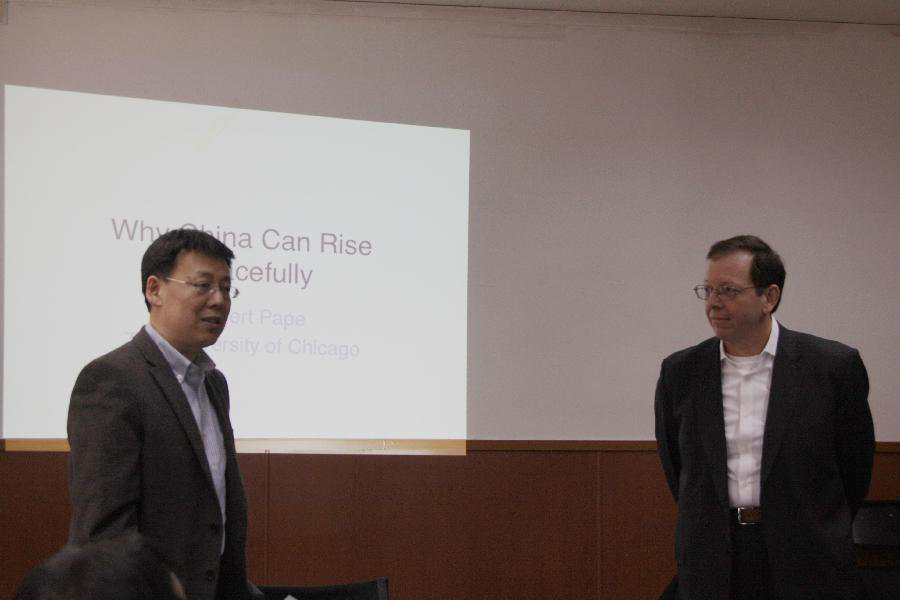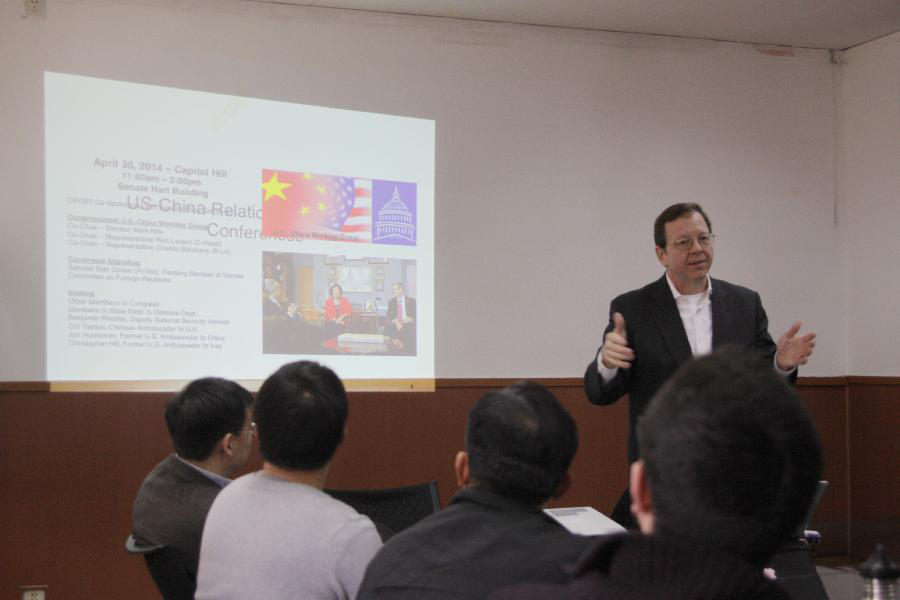On March 12, 2014, invited by theInstitute for Global Cooperation and Understanding of Peking University (iGCU) and American Studies Center of Peking University, Professor Robert Pape, a professor of the Department of Political Science of the University of Chicago, visited the School of International Studies and gave a wonderful lecture in B117. As a famous American scholar of International Security and Strategic Studies, Professor Pape has made pioneering theoretical studies on such issues as compulsory diplomacy, economic sanctions, soft balancing and terrorism, and has a wide influence in the international academic field.During the 2008 American presidential election, Pepe served as Obama’s adviser. He once taught at the United States Air Force Academy and Dartmouth College, and is a lifetime professor of the Department of Political Science of the University of Chicago.

At the beginning of the lecture, in combination with the current background of structural changes in global power, Professor Pape first revealed through empirical data that the relative power of China and the United States has undergone significant changes since the 1990s, then put forward the pessimistic view of traditional realism on the rise of China and its defects. Professor Pape argued that the traditional realist view of "structural pressure escalates the crisis and even leads to war" ignores the ability of a country to adapt in assessing and dealing with international security crises.
Professor Pape criticized the "Stability-Instability Paradox" , put forward a model for the four-stage upgrade of the international crisis, and explained the prudence and adjustment ability of nuclear powers in the upgrading of the crisis.From this point of view, Professor Pape concluded that both China and the United States have a strong drive to avoid an upgrade of the crisis based on mutually assured destruction of second-strike capability and the existence of nuclear deterrence, so there will be no cold war or hot war between them. Thus, China will rise peacefully.
Finally, Professor Pape analyzed the future trends of China-US relations.In his opinion, nuclear deterrence gives China and the United States common interests in maintaining stability in Asia, and the two countries will carry out strategic and security cooperation in ensuring regional stability.

The lecture was presided over by Fan Shiming, Secretary-General of the American Studies Center.The lecture was attended by Professor Ji Hongbin, visiting scholar of the School of International Studies of Peking University and Second Artillery Command College, Professor Zhang Zhirong and Dr. Jie Dalei from the School of International Studies of Peking University, Associate Professor Wang Dong, Executive Deputy Director of theInstitute for Global Cooperation and Understanding,and nearly 30 postgraduates and doctoral students of different disciplines.The lecture concluded in a lively atmosphere. Teachers and students raised many relevant questions to Professor Pape, who answered them one by one. They had a wonderful in-depth discussion.
